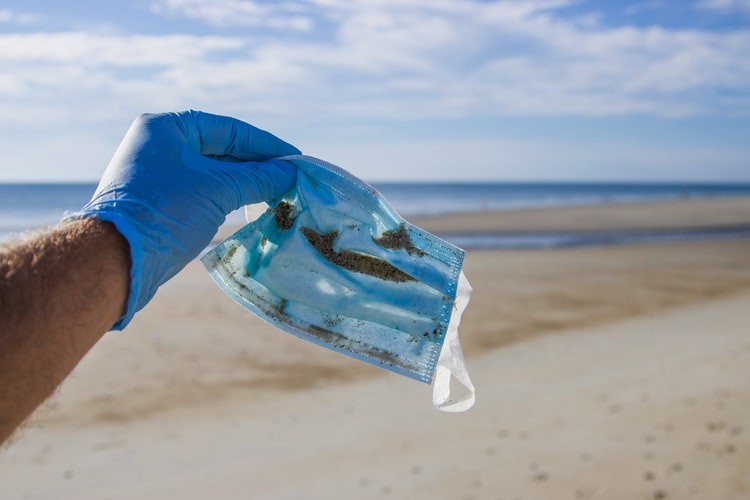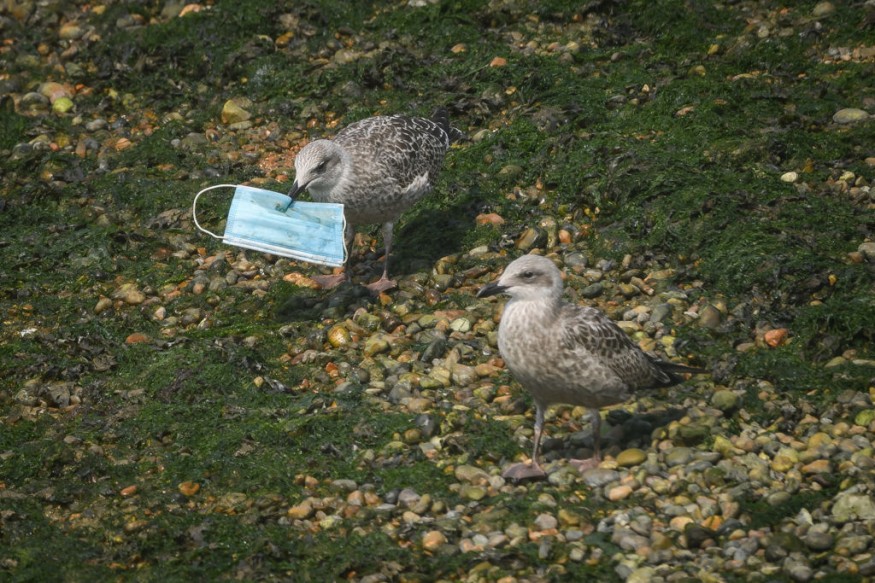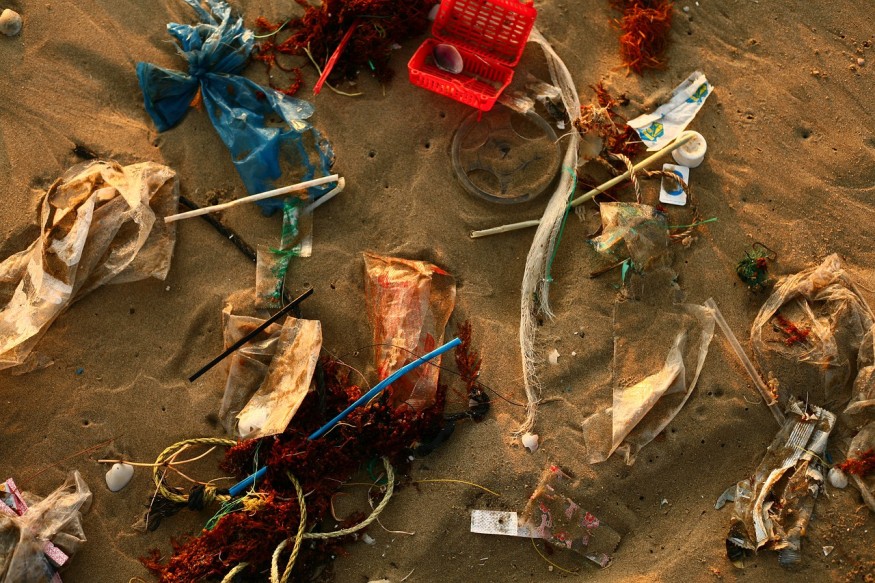Masks and gloves are used to protect everyone from the coronavirus pandemic.
However, a new study showed how big a threat they are to animals when thrown away irresponsibly.
PPE Pollution

Personal Protective Equipment (PPE) is widely used during the COVID-19 pandemic, resulting in a new generation of litter: protective face masks and gloves. These goods, which are meant to keep people safe, potentially damage the animals in the immediate vicinity. The website provides the first detailed review of all incidents of COVID-19 litter entanglement, entrapment, and ingestion, as well as the use of gloves and face masks in bird nests. Personal Protective Equipment (PPE) is widely used during the COVID-19 pandemic, resulting in a new generation of litter: protective face masks and gloves. These goods, which are meant to keep people safe, potentially damage the animals in the immediate vicinity.
Related Article : World's First Plant-Based Face Mask Invented in the UK!
Animals Entangled

Among the victims were a fish that has gotten stuck in the finger of a rubber glove in the Netherlands, a penguin in Brazil with a mask in its stomach, and a fox in the United Kingdom entangled in a mask.
The researchers studied garbage hunters, birdwatchers, animal rescue centers, and veterinarians on various news outlets and social media and uncovered accidents on land and in water all over the country. They have, however, stated that even more data is needed and have opened a website where anybody can upload a report.
Findings
The research, which was published in the journal Animal Biology, is the first to look at reports of Covid-19 litter entanglement, entrapment, and ingestion by animals. The PPE litter mostly consisted of single-use latex gloves and single-use masks made of rubber bands and mostly polypropylene cloth.
The first victim discovered by the researchers was an American robin caught in a mask in April 2020 in Canada. A checkered pufferfish was also found dead near Miami Beach, Florida, after being trapped in a face mask, and a shore crab was killed by a mask in France.
According to the researchers, a serotine bat was stuck in between two masks in the Netherlands, a hedgehog was caught in a glove in the UK, and a monkey tried to eat a mask in Malaysia. Masks were also found to be eaten by pets, including dogs.
One of the report's contributors, Liselotte Rambonnet of Leiden University in the Netherlands, said, "Animals get weakened due to being entangled, or die due to the plastic in their stomach."
After volunteers alerted Rambonnet and Auke-Florian Hiemstra of the Naturalis Biodiversity Center in Leiden to a perch stuck in a glove during a canal cleaning, they began investigating. Coots have also been seen making nests out of masks and gloves in Dutch canals.
Rambonnet and Hiemstra hope that their findings will raise general consciousness about the risks of discarding masks and gloves to wildlife. They encouraged people to wear reusable masks, while some proposed chopping up disposable gloves and snipping the straps on masks before discarding them to protect animals from being entangled. Any jurisdictions in the United States have since increased the penalties for littering with PPE.
PPEs Everywhere

PPE was discovered on almost a third of the beaches surveyed by beach-cleaning volunteers in the UK in September.
Although the proportion of Covid-19-related litter is limited in contrast to packaging litter, the researchers believe it is a striking illustration of our disposable culture. They concluded, "People might be affected by the coronavirus pandemic, but nature is sick of our plastic."
Covidletter.com
Covidletter.com is the website that the researchers created as some sort of hotline to report PPE-related incidents to further record the cases and provide more data for the study.
The website provides the first detailed review of all incidents of COVID-19 litter entanglement, entrapment, and ingestion, as well as the use of gloves and faces masks in bird nests.
Read also: Seafood's Secret Ingredient: Microplastic
For more Environmental News, don't forget to follow Nature World News!
© 2025 NatureWorldNews.com All rights reserved. Do not reproduce without permission.





